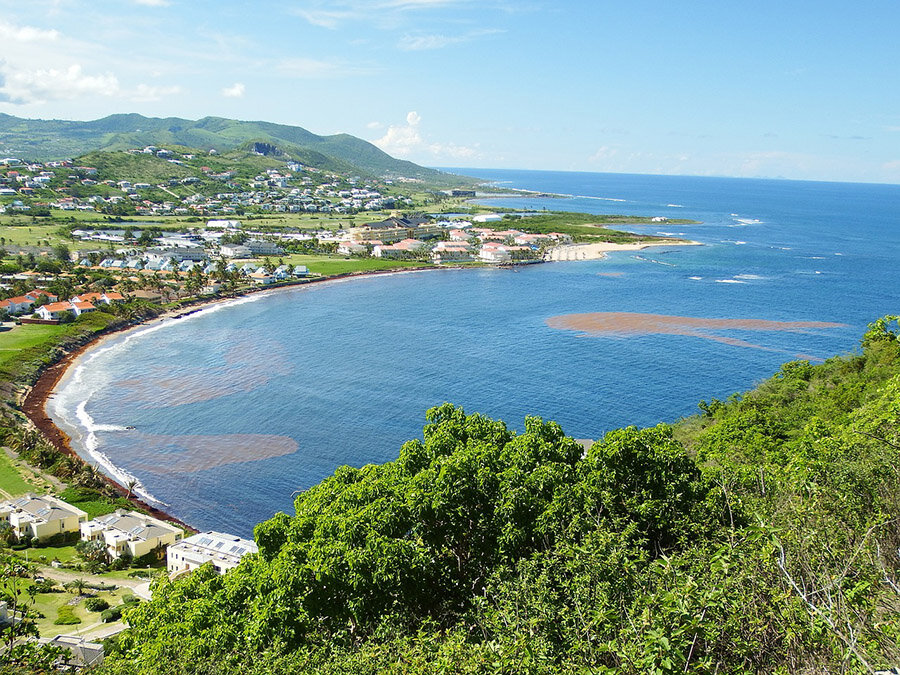Caribbean CBI Programs Under US Pressure: St. Kitts and Dominica Announce Stricter Rules

Photo: Needpix.com
Caribbean nations with Citizenship by Investment (CBI) programs have launched urgent reforms following reports of potential US visa restrictions. Authorities in St. Kitts and Dominica have confirmed legislative changes and stricter conditions for participation in their CBI programs, reports IMI Daily.
The administration of President Donald Trump is considering new entry restrictions for citizens of 36 countries, writes Reuters. This plan is part of the new US government’s tough immigration policy. An internal State Department document signed by Secretary of State Marco Rubio lists 12 reasons for potential bans, stressing that sanctions will apply only to countries that fail to take corrective action within two months.
Reasons for inclusion on the list include governments’ inability to issue reliable identification documents, low passport security standards, refusal to accept deported citizens, and lack of cooperation with the US. The memo also cites cases of citizens from these countries engaging in terrorist activities, anti-Semitic acts, and anti-American actions.
Countries previously placed on the “blacklist” include:
Afghanistan, Myanmar, Chad;
Republic of the Congo, Equatorial Guinea;
Eritrea, Haiti, Iran;
Libya, Somalia, Sudan, and Yemen.
Partial restrictions have been imposed on citizens of Burundi, Cuba, Laos, Sierra Leone, Togo, Turkmenistan, and Venezuela.
The new list covers Africa, Asia, the Caribbean, and Oceania. It names Angola, Antigua and Barbuda, Benin, Bhutan, Burkina Faso, as well as:
Cabo Verde, Cambodia, Cameroon;
Côte d’Ivoire, Democratic Republic of the Congo;
Djibouti, Dominica, Egypt;
Ethiopia, Gabon, The Gambia;
Ghana, Kyrgyzstan, Liberia;
Malawi, Mauritania, Niger;
Nigeria, St. Kitts and Nevis;
St. Lucia, São Tomé and Príncipe;
Senegal, South Sudan, Syria;
Tanzania, Tonga, Tuvalu;
Uganda, Vanuatu, Zambia, and Zimbabwe.
A US State Department spokesperson told Reuters that the department constantly reviews visa policies to protect US citizens’ safety and added: “It is the duty of the United States to protect the country and public safety by raising admissibility standards.” However, it was emphasized that not all grounds listed in the memo apply to all countries on the list.
During his first presidential term, Trump had already imposed entry bans on citizens of predominantly Muslim countries. This measure faced legal challenges but was ultimately upheld by the Supreme Court in 2018.
Following news of US reforms, St. Kitts and Nevis Prime Minister Terrance Drew announced the most significant changes ever to the country’s CBI program. Within weeks, new rules will be introduced requiring applicants to fulfill residency obligations and submit biometric data. For the first time in regional CBI program history (except for Antigua and Barbuda), physical presence is becoming mandatory, altering the programs’ primary appeal of obtaining citizenship without relocation. Authorities present these measures as pre-planned, not forced. “This is not a reaction; it’s the path we’ve been on from the beginning,” emphasized Drew.
He noted that CBI “is not a private club but the people’s business,” and reforms aim to preserve the country’s international reputation, strengthen trust in the St. Kitts passport, and protect national interests. Authorities also disclosed that nine citizens had been deported from the US and stressed that security measures would be reinforced.
Dominica’s Prime Minister Roosevelt Skerrit addressed the issue, urging citizens not to panic and promising legislative action in the coming days. He assured that the situation was under diplomatic control and confirmed that Dominica takes international partners’ concerns seriously.
Skerrit announced plans to introduce legislation prohibiting African applicants from changing their names during or after acquiring citizenship. Other administrative measures are also expected and will be announced soon. Skerrit promised full transparency, saying all steps would be explained to the public. He described the US as an important partner “across many areas—cultural, economic, and political.”
According to the prime minister, regional countries have already agreed to establish an independent regulatory body to oversee CBI programs. Dominica is prepared to work with international institutions to address concerns, including illegal migration and Dominicans overstaying visas in the US—a key US complaint.
Meanwhile, the European Commission has also announced potential visa revocations for countries issuing citizenship-by-investment passports. Malta was the first to face restrictions. Pressure on “golden passport” programs is increasing worldwide, forcing many governments to reform these initiatives to preserve visa-free access and avoid sanctions from key partners.
See also:
Golden Visas 2025: Countries Maintaining Programs and New Limits
Argentina Citizenship by Investment: A New Program Emerging
Spain to Audit Naturalized Citizens: Who Risks Losing Their Passport?
Cyprus Issued Nearly 29,000 Golden Visas. EU Tightens Oversight
UK’s New Investor Visa: A Bet on Strategic Industries








